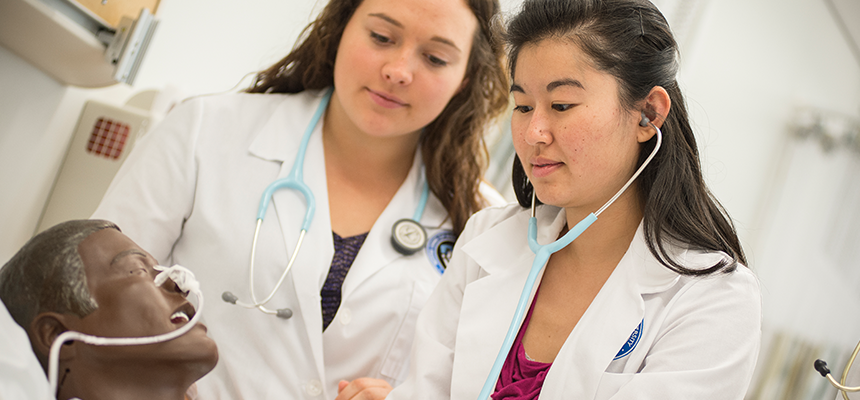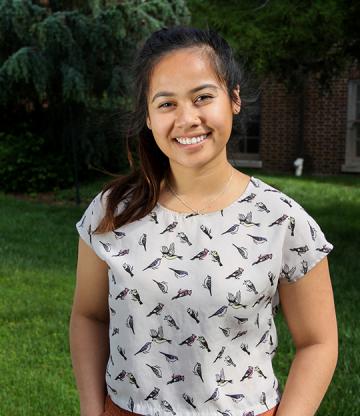
The Bachelor of Science in Nursing (BSN) at NDMU
Notre Dame offers three ways to secure a BSN:
- Traditional four-year BSN program through the Undergraduate Studies
- Accelerated Second Degree BSN program (on-campus and online-based) for those who hold a bachelor’s degree in another field, but wish to become a registered nurse (ideal for adult career changers)
- RN to BSN program for registered professional nurses pursuing a bachelor’s degree
Nursing Major
All qualified applicants are admitted to the University as nursing majors from day one.
Transfer Students
Sophomore Year
Enter the University in your sophomore year as a nursing major to complete general education requirements, courses in the liberal arts, and all support courses prior to taking junior-level nursing courses.
Junior Year
To enter the University in your junior year, you must apply for acceptance.
Policies
What to Expect Studying at Notre Dame of Maryland University
Small class sizes, faculty mentoring, and hands-on experiences offer an environment of individualized learning while clinicals, service-learning, and study abroad provide opportunities to transform the world.

Cleaya Antes
Leadership & Teamwork
Research & Internship Opportunities
As a nursing student, you will have research opportunities both in the classroom and in clinical practice.
- Nursing Research, a required course for all students, includes a service-learning component.
- During your Clinical Practicum, you will have an opportunity to create a Transformational Practice Project which can be presented at our annual BSN symposium and at Nancy Kreiter Student Research Day.
In Nursing, we teach the value of advocacy; advocacy for patients and their families. Research assignments are often built on this outcome and the School of Nursing’s mission overall.
Clinical Experiences
You will have an opportunity to gain experience in a clinical setting at the start of your junior year, and you will take courses with a clinical component every semester from that point forward.
In clinicals, you will have a chance to apply concepts learned in the classroom by working with patients and their families under the supervision of a clinical instructor.
Clinical Sites Include
- University of Maryland Medical Center
- The Johns Hopkins Hospital
- University of Maryland St. Joseph’s Medical Center
- Mercy Medical Center
- Greater Baltimore Medical Center
- Good Samaritan Hospital
Simulation Labs
In addition to clinical sites, you will also spend time in our state-of-the-art simulation labs, which allow you to practice your response to realistic medical situations in a safe environment.
Study Abroad
You may choose to participate in a mission trip to Haiti as part of the Community Health Clinical Experience.

